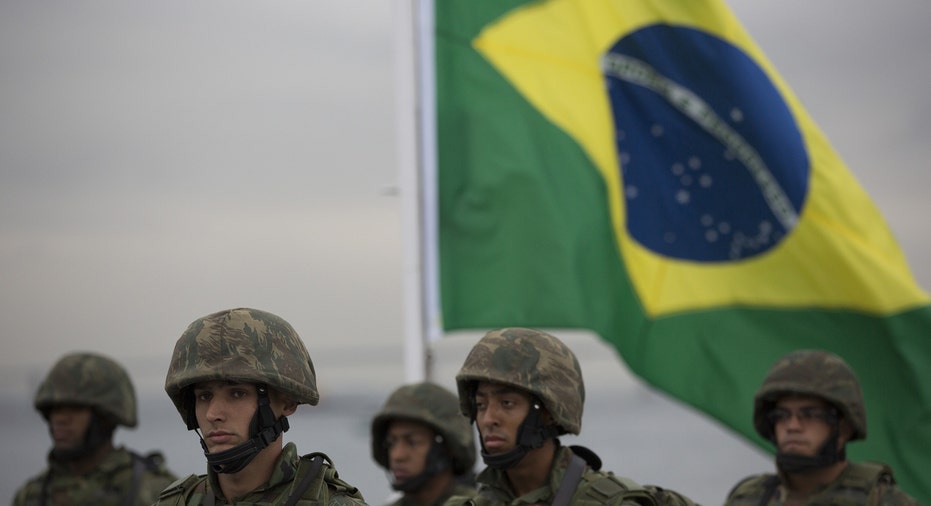Rio Olympics Security Scrutinized After Terror Arrests

As Brazilian officials scramble to prepare for the hundreds of thousands of tourists traveling to Rio de Janeiro for the 2016 Olympics, the recent “lone wolf” terror attacks in Orlando and France have renewed concern about the cash-strapped Rio state’s ability to secure key venues.
Local police arrested 10 people in 10 states across Brazil on Thursday for purportedly pledging allegiance to the Islamic State group and communicating through social media about a potential attack during the Summer Olympics, FOX News reported. Authorities described the suspects at “complete amateurs,” but noted that some had attempted to secure weapons, including an AK-47 assault rifle.
Government and Olympic officials have repeatedly stressed that they are adequately prepared to vet travelers and protect tourists. More than 85,000 security personnel will be deployed in the streets of Rio, including a large contingent of military police. But Brazil’s financial crisis has decimated morale among Rio’s civil police force, groups of whom have gone on strike to protest poor working conditions and delayed paychecks. With two weeks to go until the start of the Olympics, Brazil faces an evolving terror threat with security forces that may lack adequate training or funding.
“During this threat period, having an event such as the Olympics in the United States with the advanced system of policing that we have would be difficult,” John Cohen, a former counterterrorism coordinator at the U.S. Department of Homeland Security and professor at Rutgers University in New Jersey, told FOXBusiness.com. “In a place like Rio, where crime is endemic, corruption is endemic and there are other challenges facing police, it’s going to be even more complicated.”
Despite a months-long crackdown on organized crime, Rio has seen an uptick in violent crime during the first half of 2016, especially in poor inner-city areas. The state’s homicide rate rose 15% through the first four months of the year, while robberies rose 24%, according to Washington Post statistics. Human rights groups, including Human Rights Watch and Amnesty International, allege that brutality and summary executions are rampant among the military police that are being counted on for Olympic security.
Other parts of the country’s security apparatus have come under increased scrutiny as well. A Wall Street Journal report found this week that government contractors have hired just 1,500 of the 7,000 people needed to screen spectators for weapons at stadium entrances. Many of those hired reportedly lack adequate training or security experience.
But Olympic stadiums are only part of the problem, Cohen said. Terrorists are increasingly conducting attacks on less obvious targets, such as restaurants, hotels and public transportation systems.
“You don’t even have to conduct an attack at one of the venues to bring visibility to your cause,” Cohen said. “You could go and do an active-shooter type of attack at a restaurant in Rio, and because Rio is on the international stage, that’s going to bring a significant amount of attention to somebody who’s carrying out an attack on behalf of some ideological cause.”
Despite financial strains that led Rio’s state governor to declare a state of emergency this year, the Brazilian government is teaming with international intelligence agencies to staff a counterterrorism center tasked specifically with assessing threats to the Olympics. Authorities have increased checks at local airports and deployed officers at public places like beaches.
Coordination between Brazilian authorities and outside intelligence services is crucial to establishing the layers of security that can prevent a terrorist attack. The rise of self-radicalized “lone wolf” attackers, who obtain weaponry and training without direct ties to well-known terrorist groups like ISIS or al-Qaeda, has made it more difficult than ever for governments to detect threats.
“You have to have a fully-integrated, highly professional, highly competent security operation, which brings together not only security professionals, but local and national law enforcement authorities who work closely with intelligence and military entities,” Cohen said. “I think it’s going to be lift for Brazil to be able to bring to bear that kind of capability during the Olympics.”



















